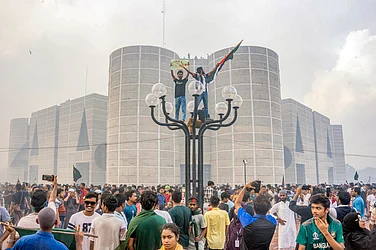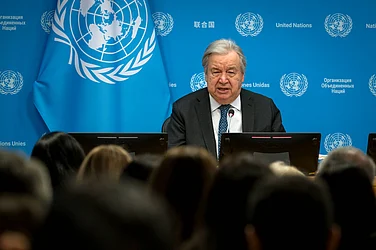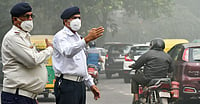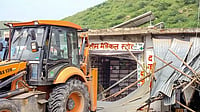The benevolent Black Sea Grain Deal has come to an end with Russia suspending the bilateral deal with a war-torn Ukraine, on Monday. The announcement followed the explosion that knocked off Russia’s bridge to Crimson, a crucial corridor for Russian troops employed in Ukraine. Russia suspects the attack to have been led by Ukrainian sea drones, which also resulted in two casualties. However, Moscow denies any link between the two events and cites ‘unfulfilled demands’ as the reason for this withdrawal.
The Black Sea Grain initiative was the sole ray of hope for the world, inadvertently affected by the ongoing year-long war. While domestic food price inflation remained high, the prices momentarily retreated from the peak they hit in 2022 in lieu of the settlement between Ukraine and Russia facilitated by The United Nations and Türkiye. As suggested by The International Rescue Committee, the grain deal was a “lifeline for the 79 countries and 349 million people on the front line of food insecurity”. It allowed 32.9 million metric tons of food to be exported from Ukraine since August. However, Russia announced the suspension of the deal on Monday, rendering the safety net of the three operational Ukrainian ports - Odesa, Yuzhny and Chernomorskoy - ineffectual, starting now.
Disadvantaged Russian exports and an alleged inadequate distribution of food exports between the developing and developed nations, were quoted as two of the reasons. Simultaneously, the three-year memorandum signed by the UN to help Russia take its food and fertiliser to the foreign market will also stand terminated with the Black Sea initiative upended.
The Anticipated Resumption Of A Food Crisis
Russia’s unprecedented invasion of the ‘breadbasket’ of the world in February 2022 exacerbated a food crisis onset against the backdrop of a catastrophic pandemic and cascading climate shocks. The UN foreshadowed a figure of 181 million people in 41 countries to eventually be predisposed to an ignominious food crisis. Although 2022 recorded peak prices and the situation has since improved, food prices remain elevated since 2021.
Ukraine and Russia share 90% of wheat export in Armenia, Azerbaijan, Eritrea, Georgia, Mongolia and Somalia. Ukraine is also a major source of wheat supply to the World Food Programme; it provides aid to 115 million people in more than 120 countries. While Russia is one of the world’s top three crude oil producers and the second-largest exporter of natural gas.
The two countries together account for close to a third of the world’s wheat and barley exports. While Ukraine remains the frontrunner as the exporter of sunflower seed oil, Russia joins the ranks as the top global fertiliser producer and exporter.
The longstanding conflict between the two major producers and exporters of staples across developing countries, primarily in Africa, Asia and the Middle East, has affected the Global Food, Agriculture and Fuel Market.
Ukraine predominantly carries out most of its exports via sea. Ninety per cent of wheat and other produce is shipped to the world markets by the eminent Black Sea route. However, the routes had since been blocked by Russian blockades. As per Gauber, a former Chief Economist at the US Department of Agriculture, in lieu of the handicap imposed by Russia, Ukraine’s exports dropped to a mere 1.5 to 2 million tons of grains a month - a major dip from the previous estimate of 6 million tons.
Russia was held accountable by not just the Ukrainian authorities but also Western officials for ‘weaponising food’ - for blocking and shelling agricultural infrastructure and carrying out ‘grain laundering’. While Russia continued to inflict damage on Ukraine, western sanctions imposed on the Russian banking and shipping industries crippled the superpower’s propensity to thrive in exclusion. The Global food crisis is an amalgamation of factors including, the supply and demand curve disturbed by the pandemic, environmental derision with constant climate shocks and lastly the social, economic and political upheaval ushered in by the Ukraine-Russia war.


























